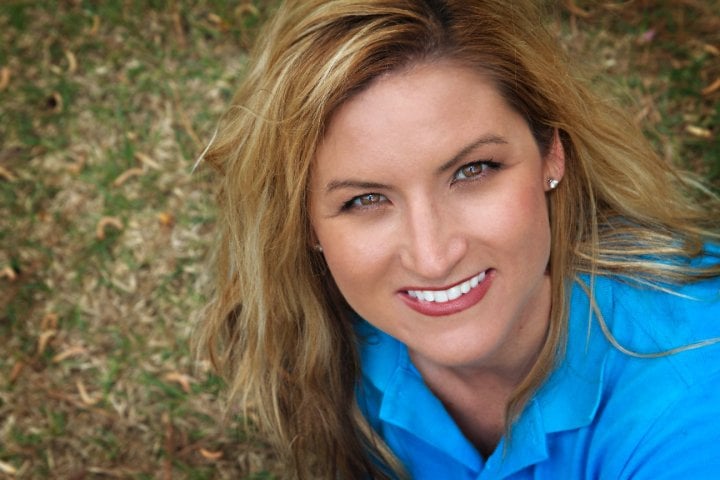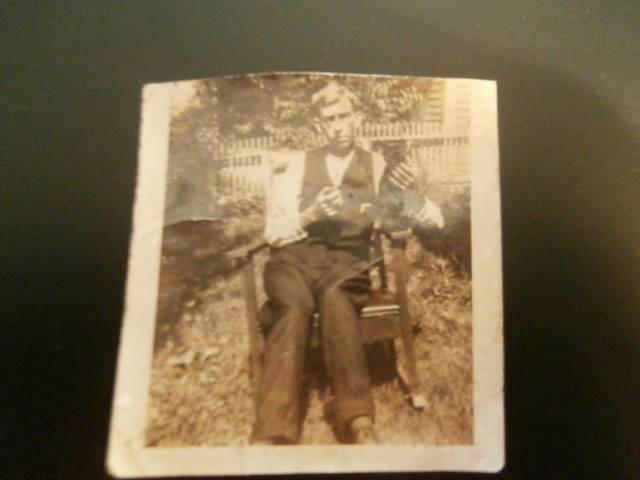Editor’s Note: Rebekah Sanderlin is a journalist, a military wife and a dear friend. She is also a native of Tennessee. As you can tell, we share a lot in common. In the following essay, Rebekah talks about another thing we share – the loss of our Southern accents. Something we both are sorry to have left behind. Rebekah sent me this essay after reading the previous post about Judging Intellect. I asked her permission to share it with you. You can check out more of Rebekah’s work by clicking here.
By Rebekah Sanderlin
“You don’t sound like you’re from Tennessee,” some say, smiling and nodding, as if they’re paying me a compliment. To those who believe a southern heritage is something to overcome — something best allowed to shrink in the rearview mirror in clouds of red clay dust — I have prevailed, and so they congratulate me on my success. But others are equally apt to cross their arms over their chests, lower their chins and peer at me through small, squinty eyes, as suspicion weaves a thread through their faces. To them, the proud southerners, my voice bears witness against me, branding me as an unabashed and unreformed Appalachian sellout. The response I get to my accent — or, more accurately, lack of an accent — generally depends on where the other person is from.
I didn’t always sound so generic. I recall being a child and responding to my mother’s corrections with, “What do you mean ain’t ain’t a word? I just said it, didn’t I?” Just as I remember needing context clues to decipher her commands. Did she want me to “come here” or to “comb hair”?
From my early days I knew that a chaw of tobacco was a generous pinch-sized chew, and that chow-chow was the relish we used to dress up everything from beans to chicken. I could talk about a couple of whistlin’ pigs and everyone knew I meant groundhogs, as many as six, and that they’d be deader’n a door nail if we hit them with a buggy, which could mean anything from a shopping cart to the riding mower.
It was common for the old folks to talk about swinging dead cats, and there were lots of ways to skin those cats, by God. If I wanted my parents to believe I was sleeping, I reckoned it was best to just play ‘possum. The people around me were always fixin’ to do something, maybe make a ruckus or satisfy a hankerin’. Our parties were shindigs and Lord help us if we went to ‘em in clodhoppers. When I ordered a Coke from a waitress, I knew she would follow up by asking “what kind?” And when I hollered at my kin to come to supper, only the position of the sun would determine if I meant lunch or dinner. But they knew. It might take them a while to get there if they were over yonder, but I knew I could easily get to yonder by hoofin’ it for a spell.
Then the early 1990’s hit — a time when my hometown of Nashville was overrun with entertainment industry types fleeing Los Angeles and New York. A popular bumper sticker back then read, “Would the last person to leave L.A. please turn off the lights?” (Another read: “Welcome to Nashville. Now y’all go home.”)
Meat n’ three’s, a southern-style of diner that offer meals of one meat and three vegetables, began to be replaced by bistros, cafes and grilles serving California and Asian fusion cuisine. Many of our restaurants stopped making sweet tea altogether, opting instead for a God-awful unsweet brew, served with lemon juice in squeeze pouches and packets of pink, yellow and blue sugar substitutes that looked like baby shower party favors. People even began to use “barbecue” as a verb.
Our whole city seemed eager to impress the newcomers and to adopt their ways. For their parts, the east and west coast transplants seemed equally eager to point out all of our inadequacies. Amidst this city-wide upheaval, I started junior high — and entered into my most impressionable years. My newcomer classmates convinced us natives that California was the place to be (despite the fact that their families had fled), and that our ways were backward — and I bought it all — hook, line and cane-pole sinker.
A new friend from New York influenced the way I pronounced my friend Sarah’s name. I adopted the New Yorker’s throatier “Sahr-uh” instead of the twangy Tennessee “Say-ruh”. Words like “gnarly” and “rad” slipped into my sentences, replacing “awful” and “precious.” George Strait got the boot and Nirvana and Pearl Jam were ushered onto my tape deck.
At the same time, I began to study the manner of speech employed by the people on TV. Television was a place where no dialects existed and everyone spoke with the same uniform enunciation. I even toyed (briefly) with referring to my mother’s sisters as my “onts” — a far cry from the pronunciation my grandmothers used, which sounded more like ain’ts.
I practiced my words with the diligence of an immigrant learning the language in a new country. Within months I had completely ditched my accent — and become an alien in the land of my birth.
Most heartbreakingly, my “Daddy” became simply my “Dad”, a metamorphosis he tried to accommodate and one I can track when I look at how he signed the birthday and Christmas cards he gave me during those years. Not until he was on his deathbed a few years ago did I try to make him “Daddy” again — and then he just looked at me, confused. Too much time had passed.
In my impressionable years I bemoaned the Tennessee accent to justify dropping it, complaining that it wasn’t pretty like the lilting drawls found in South Carolina and Mississippi. The Tennessee accent is more, well, tinny. It has an edge, like the sharp rim of an opened can. My ancestors were never wealthy. They never owned plantations. They never napped on sleeping porches or sipped mint juleps from dainty silver cups. They were share croppers and mountain men, hard folks of Scots-Irish descent who picked their way one agonizing step at a time across the Smoky Mountains before settling on the other side of Rocky Top. The drank from jars and they fried nearly everything because the foods they could afford were the odds and ends no one else wanted, and those scraps tasted best dredged in batter and grease. Mine were plain-spoken people who used the lyricism of their words and the emotion in their inflections, and not the trilling of their voices, to tell their colorful stories. And I hated them for that.
Even though I went to college in Nashville — just two miles away from my high school — no one could tell where I was from when they met me. My new college friends often asked if I was from Colorado or Ohio, or maybe, yes, California.
Even now, a decade into my life as an Army wife, I’ve managed to never live outside of the south — and yet people still ask if I’m from Michigan or Washington State, such is the nature of my non-existent accent. I’ve developed a handy way to explain my missing dialect, a way that doesn’t make me sound like a hillbilly heretic. “I studied Broadcasting in college,” I say, and they nod, sometimes noting that Katie Couric and Diane Sawyer don’t have accents, either. And I did study Broadcasting — I took one course, but my accent was already long gone before then, left to rot somewhere in a gnarly pile of yesterday’s fusion cuisine.
From time to time I catch myself instinctively dropping a syllable. For instance, I can’t pronounce the Tennessee city Lebanon the same way I pronounce the country. The city will always be “Leb’nin” to me — it just sounds wrong any other way. When I say “East Tennessee” the emphasis is always on the “Ten”, and that syllable becomes two beats long. That’s just how it has to be said. Likewise, I can’t say “shortening” — it’s “shortnin’”, and I just can’t bring myself to call it a “garden hose”. It will always be a “hose pipe.” I still know what potlikker is, of course, and I still call it that. There is no other word for potlikker because people outside of the south don’t know that you’re supposed to save it and sop it up with cornbread. (Which, incidentally, I make about once a week in a cast iron skillet, and eat with butter and mo-lasses. And, when it’s colder than mo-lasses in December, I know I need to hurry on inside for some hot Russian tea, which I’m pretty sure no real Russian has ever tasted.
But, bless my heart, my universal accent ruse falls apart when I’m drinking. And Lord help me if I’m drinking with southerners. Within minutes they look at me like it’s an affect — like when Madonna moved to England and started talking British. I have to explain then that I have a right to talk southern, that it’s my heritage, too. But, without fail, they give me that look that says, “Well, why in the world did you ever stop?” And, honestly, I don’t know why. It just seemed like the thing to do at the time.











